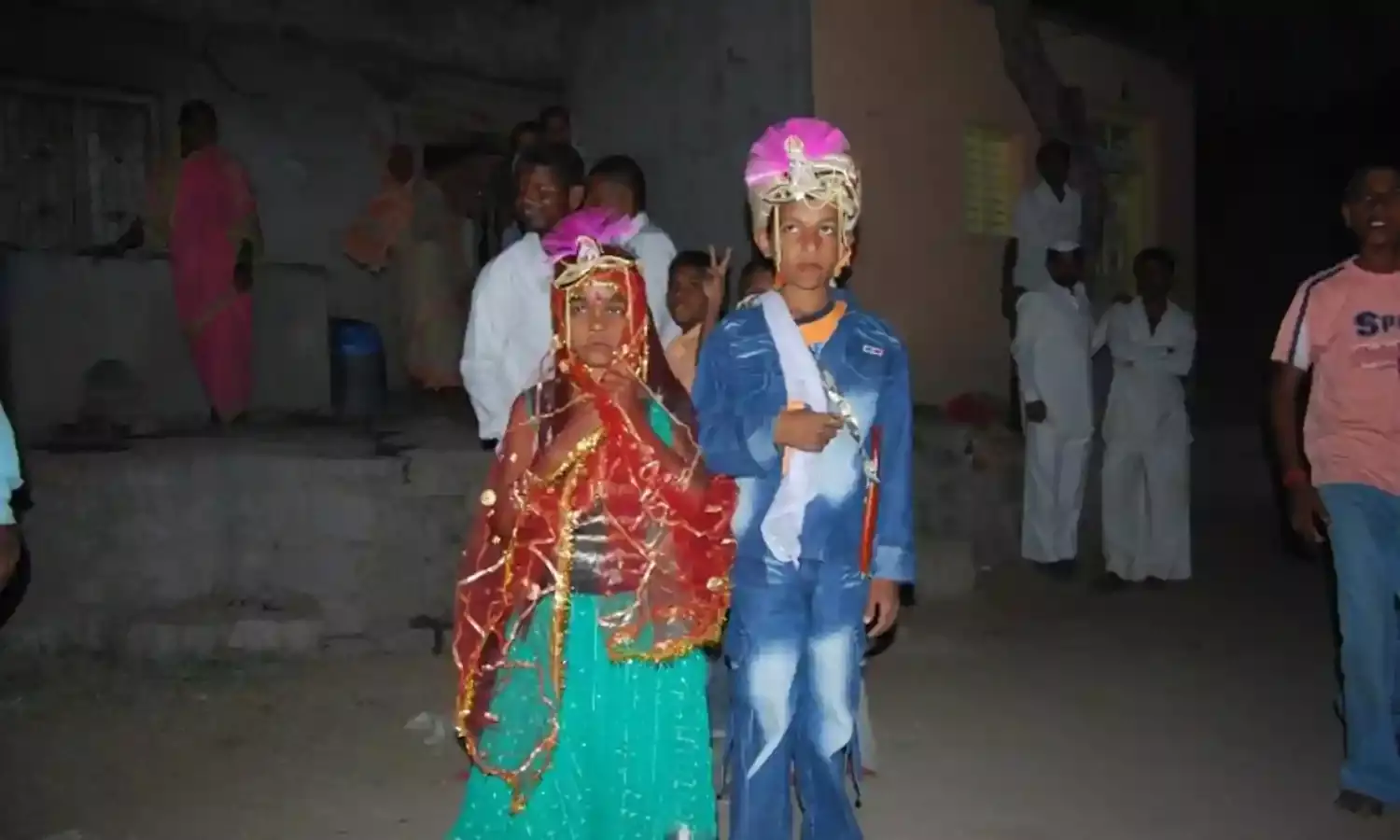'Before They Go Off to College and Fall in Love'
More people may be marrying off their children in India

CHENNAI: Deekshika and Prathiba (names changed) are sisters. When they lost their parents at a very young age, they were placed in the care of their maternal uncle. Their uncle then admitted them into a state-run hostel. After covid, however, the hostel authorities decided to send the children back to their relatives to better ensure their safety during the pandemic. When the sisters were returned to their uncle's home, his wife was unhappy and complained about being unable to afford to take care of the girls, apart from their own two children. The uncle, an agricultural labourer was unsure about his employment. So he decided to arrange the marriage of the older girl, Deekshika, who was 14.
Fortunately, Deekshika was rescued in time after some calls were made to the helplines. She told her rescuers she did not want to return to her uncle's place, and is now safe in a home approved by the state Child Welfare Committee, and is back in school as well.
Although the data provided in the Fifth National Family Health Survey (2019-20) shows a slight decline in the number of child marriages, the ground reality may be different, especially since the pandemic. Poorani, a child protection officer for Adolescent Empowerment in Ending Child Marriage, an independent project run by UNICEF, says that "most of the cases we see are because of parents and families falling into the trap of poverty, children being orphaned and relatives being unable to take care of them. The pandemic has definitely made it worse."
In the NFHS 5, West Bengal, Uttar Pradesh, Rajasthan and Bihar top the charts in child marriage – more than half the respondents in West Bengal were married before they turned 18. The southern states fare better, and the survey confirms that communities with poor gender and other developmental indicators are more prone to practising child marriage. Education also is a big factor, as seen in school dropout rates and enrolment in higher education. Child marriage further contributes to girls being made to leave school.
Poorani tells The Citizen, "We approach child marriage as a gender-based violence aspect. Even if the poverty angle comes in, the girls are more at a disadvantage. If you have a daughter and a son and you can afford to educate only one, the family usually decides to educate the boy. Once the girl attains puberty the family considers her a burden, in terms of protecting her safety. They attribute this to the lack of transportation, lack of lighting, and sanitation facilities in schools.
"Religion and caste are also leading to a lot of elopement cases lately, especially in Tamil Nadu, and parents, in order to prevent elopement with someone from a different caste or religion, choose to marry their daughters off early, before they go off to college and fall in love."
What action is being taken against offenders? "According to the Prohibition of Child Marriage Act, anyone involved in any way can be arrested. But in reality, FIRs under the PCMA are not being filed as much. In the South, where the groom is usually in their late 20s, 30s or 40s, they are booked under the Protection of Children from Sexual Offences Act. In North India however, there are many cases where young boys are also being married off, so they cannot be booked under POCSO, for which the punishment can be up to life imprisonment."
Poorani added, "Every state should have its own legislation taking into consideration the factors that are prevalent in the state. There is a lack of political will in most states because the communities are the vote bank. Even in rural areas, you would see Panchayat heads attending these child marriages. Standard operating procedures need to be established for each stakeholder because there are multiple stakeholders involved. Social and behavioural change is the only way forward.
"It needs to be made more prohibitive. We need to strengthen the legislation. Every state has the power to amend the law, and they should do it immediately. Only Karnataka has amended the child marriage law so far. According to the Integrated Child Protection Scheme introduced in 2019, there is supposed to be Child Protection Committees established at all levels, from state to village. We just need to make it more stringent."
"There is also a lack of sensibility in officials dealing with child marriage. Some of them don't want to trouble a family already burdened by poverty. Also, in certain high cadres of police officials, some are of the opinion that anyway women are going to get married, so what's the big deal if it is a few months earlier?"
She added that women are still being seen as objects. "The age of 18 is considered mainly because of the health impact on the girl child, which is still a biased view, because the girl is only being considered for her reproductive ability. Women should not be seen as objects that are meant to be moved from one place to another. We need to talk about a girl's education, empowerment and financial stability."
"However, we cannot just increase the age of marriage without first providing proper support systems. Simply by increasing the age of marriage, we cannot assure education. Some families may lock the child up and it may be even worse for them. So we need to provide support systems and change the legislature before we think of increasing the age."
Also read 'The Surplus Man and Woman'


